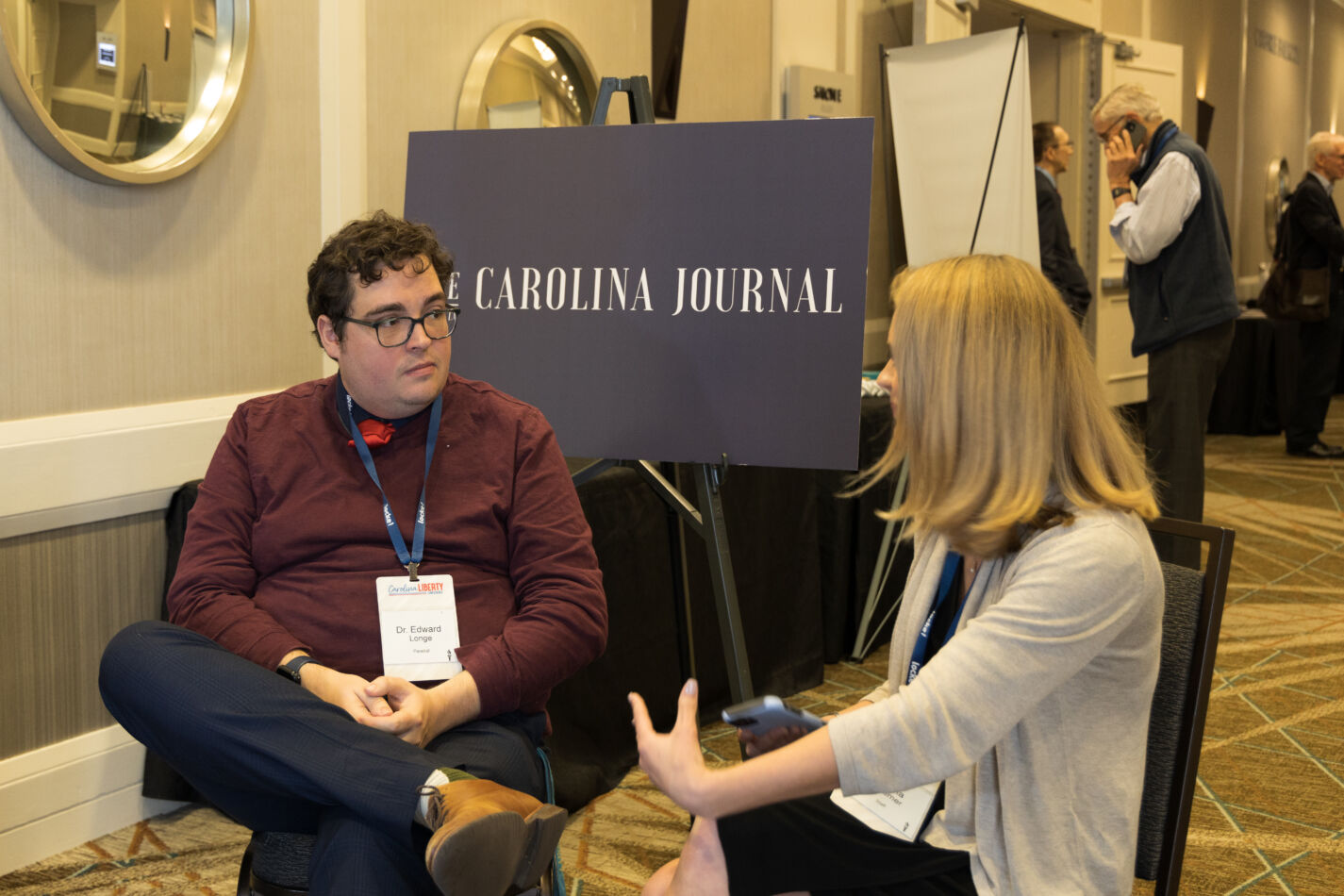Some of the nation’s top policy experts on technology attended the Carolina Liberty Conference over the weekend, where they discussed the challenges of balancing privacy and security through government regulation, particularly for vulnerable teenagers.
Several hundred attended the bi-annual gathering, hosted by the John Locke Foundation, and heard from a multitude of speakers during break-out sessions. The tech policy session looked ahead into 2024 and beyond at technology usage.
Dr. Edward Longe, Director of the Center for Technology & Innovation at the James Madison Institute, explained that about 97% of teenagers use the Internet daily, with 46% of teens saying they use it almost constantly, according to Pew Research. Longe believes teen safety is the most important policy area to address in today’s evolving technology landscape.
“It’s about how we keep them safe from those harms. That I think is the number one tech policy issue, not just in North Carolina but across the globe,” Longe said in an interview with the Carolina Journal.
Cyberbullying, scammers, and child predators are a few of the many harms children can encounter while online, along with mental health issues. A crucial step in circumventing online harm is teaching kids what to watch out for before they begin using social media, which means educating parents as well. Parents and educators can get involved in regulating social media use and promoting healthy online habits.
”Let’s educate kids on how to use social media safely,” encouraged Longe. “Let’s teach them what they need to know so when they use social media, they use it safely.”
Longe compared children’s usage of social media to driving a car, which is a learning process that parents help facilitate as their children grow up. A policy solution discussed is age verification, which is controversial because of the identity requirement. In 2023, the North Carolina state legislature passed legislation that required pornographic websites to verify the age of those visiting the site.
While there is a crucial need for regulation to ensure the online safety of children, teenagers, and adults, concerns remain about the potential for heavy-handed government regulation. Fundamental American principles like the free market and free speech are both put in jeopardy with – and without – government regulation.
Jessica Melugin, the Director of the Center for Technology & Innovation at the Competitive Enterprise Institute, addressed concerns regarding free speech online and the role governments play in limiting certain viewpoints.
“No one likes to worry about the First Amendment when they’re trying to get something done. But believe me, you want that there,” urged Melugin. “We see in Australia and countries that are similar to us in many ways but don’t have that protection, they have a huge criminalizing of speech problem. You think the PC cancel culture is bad now? Wait until you don’t have the First Amendment. You don’t want to go down that road.”

Melugin recently exposed the dangers of a proposed global body for Artificial Intelligence regulation in an op-ed published on Fox News. After Google’s CEO re-upped his calls for a global regulatory body, Melugin cautioned of the potential influence from outsiders like China and the European Union. Comparing global climate regulation to international AI regulation, she argued that “it makes little sense to cede influence to foreign governments who have the best interests of their own firms and economy at heart.
No one person, or relatively small group of people, can comprehend, prioritize and plan around all the knowledge dispersed among the engineers, users and entrepreneurs” she wrote. “We needn’t replicate the failings of international climate governance; like AI, we can learn from our mistakes.”
With such quickly evolving technology practices, the demand for technology policy at the state, federal, and global level continues to rise as legislators look for prudent regulatory measures.